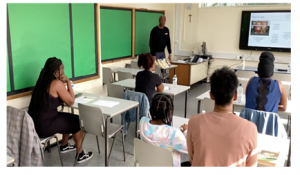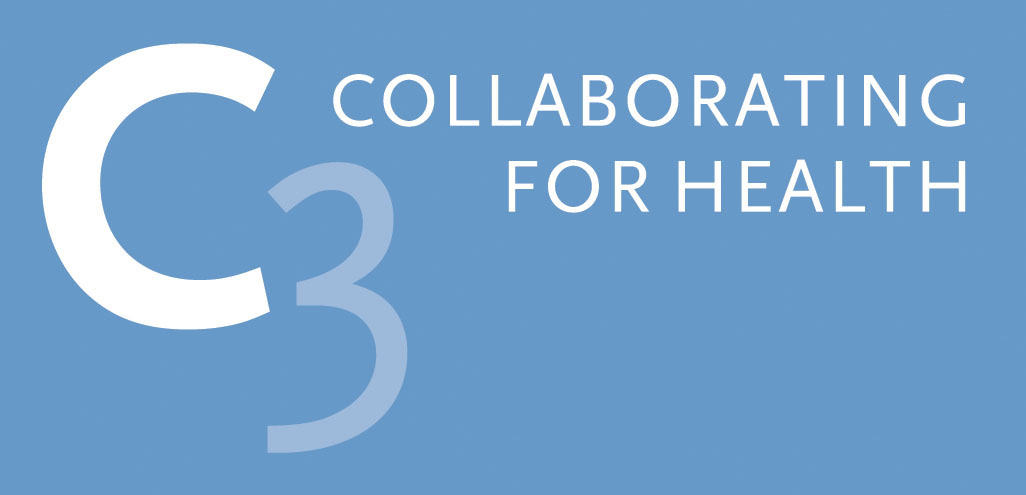Prevention in Action – PIA
What is Prevention in Action?
C3’s Prevention in Action (PIA)– a study funded by an independent medical grant from Pfizer and Viatris – aims to address gaps and barriers in knowledge around living healthily and making healthy choices among low-income, disenfranchised, marginalized populations and healthcare providers (HCPs) – Prevention in Action has worked with HCPs and local communities in England, France, and Ireland. Download the PIA toolkit for free!
C3 used CHESS® (Community Health Engagement Survey Solutions) to engage with local communities and HCPs. CHESS® provided a new lens for communities to assess their built environment and how this can influence their choices and health. Armed with these findings community members created an action plan for change. For HCPs CHESS® prompted them to reflect on how much they consider the impact of the built environment when giving their patients recommendations. Especially, in regards to the management of long-term conditions and chronic disease.
What makes Prevention in Action unique is that this is the first time C3 has brought together HCPs and local communities in one project. This provided HCPs with insight into the daily challenges their patients may face when it comes to making healthier choices.
Helping HCP’s – A free online toolkit!
With insights from HCP’s C3 has produced a free online toolkit designed to provide ongoing support to HCPs. Helping to promote healthy behaviours with their patients.
You can access the PIA toolkit here
Real-world impact – Prevention in Action:
In England
In September 2021, C3 worked with community members in Harlesden, Brent using a local secondary school as a focal point from which the CHESS® walk began. The walk took place in a section of Harlesden High Street, an area with a very high density of shops and restaurants.
The CHESS® walk identified barriers, such as the issue of affordability and the food environment, that are already widely acknowledged and unsurprising. However, it also fostered a deeper understanding of other significant barriers for residents to living healthier lifestyles, including access to information and a lack of knowledge and skills. Getting under the skin of the community in Brent through using the CHESS® strategy generated passionate debate and community-owned ideas for change to facilitate healthy lifestyles. The insight provided by CHESS® has informed the discovery phase of work in Brent and has been a lever for ongoing talks with Brent Council and community members subject to further funding. In Autumn 2022, C3 is working with school pupils in Harlesden to further develop and refine the community ideas.
 “I’ve never had a doctor ask me about what I am eating when I’ve been ill”
“I’ve never had a doctor ask me about what I am eating when I’ve been ill”
– CHESS® participant, Brent
In France
In May 2022, C3 engaged with community members in La Grande residence, Lens, using the centre social Dumas (Public funded community centre) as a focal point for the start of the CHESS® walk. Using the social centre in la ‘Grande residence’ enabled C3 to get to the heart of the community. This helped them recruit a very motivated and engaged group of 12 local residents. The walk took place in the area around the community centre, an area with several shops and restaurants and a lot of public spaces. The CHESS® tool helped community members capture quantitative data regarding their local built environment, and consider the barriers and facilitators to leading a healthy life. During the process, community members shared their experiences, anecdotes, and findings. They described CHESS® as an excellent way of assessing their local area, and a first step to implementing positive changes. The CHESS® findings will be used to support further action in La Grande residence.

“I would like to start brisk walking more regularly, but I am alone
and some streets don’t have appropriate lighting.”
–CHESS® participant, Lens
In Ireland
In Ireland, C3 engaged with ten nurses who completed online training on the CHESS® strategy. After doing CHESS® almost all the nurses reported that:
- While they had some exposure in their training or afterward on the social determinants of health it was limited, and none of them had any training on the built environment.
- They learned something new that could help them advise and manage their patients.
- They think health advice issued by healthcare practitioners should be relevant to the patient’s life, health, and local environment rather than generic advice.
Download the online toolkit
Our work with the HCPs in Ireland formed the foundations of C3’s online toolkit for HCPs. The toolkit helps prompt HCPs to consider the influence of the built environment on their patients’ abilities to make healthy choices and to provide resources to support their patients’ modify behaviors such as, physical inactivity, smoking, diet, and alcohol, all of which are risk factors for NCDs (noncommunicable diseases).
The toolkit was piloted with nurses, and physiotherapists prior to launching the final version available to access here
Read more about our community projects in France, England and Scotland.


